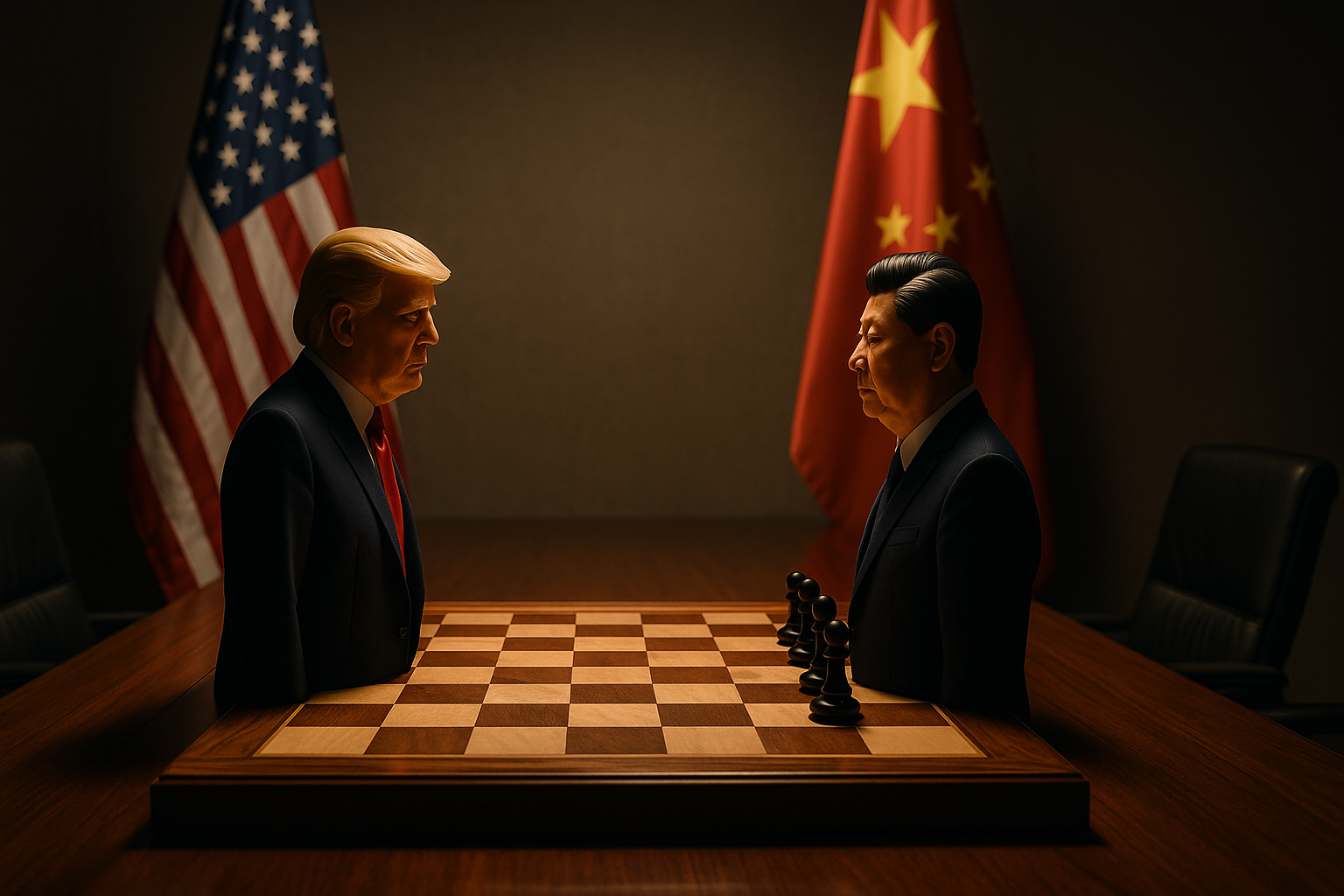The upcoming face-off between Trump and Xi has all the ingredients of political theater at its finest — except the consequences are anything but theatrical.
I've covered U.S.-China relations for years, and this meeting feels different. More tense. More consequential. The air is thick with the kind of diplomatic electricity that makes career foreign policy experts nervous.
What we're witnessing isn't just another diplomatic meeting but a high-stakes poker game where both players are holding their cards extremely close. And neither man is known for blinking first.
Here's the thing about Trump and Xi — they're locked in the world's most complicated relationship status: "It's economically codependent." These two economic giants desperately need each other while simultaneously trying to convince the world (and themselves) they could walk away tomorrow if necessary. Sound familiar? It's like watching that couple at dinner who clearly can't stand each other but jointly own a vacation property they refuse to sell.
Most analysts I've spoken with suggest America holds the stronger hand. China's growth is sputtering, their property market looks like a house of cards in a windstorm, and their export-dependent economy gives Trump leverage that, frankly, he's never been shy about using.
But here's where conventional wisdom gets shaky.
The West consistently underestimates China's pain tolerance. While American politicians nervously eye approval ratings and election cycles, Xi doesn't face the same constraints. His political system allows economic discomfort to be distributed in ways that would be political suicide in Western democracies.
"The Chinese government can absorb economic shocks that would topple Western governments," one State Department analyst told me last week (speaking on condition of anonymity, naturally). "They're playing a different game with different rules."
Trump, meanwhile, brings his own unconventional calculus to the table. The man views unpredictability not as a bug but as a feature. He's shown remarkable comfort with brinkmanship that makes traditional diplomats break out in hives.
Look, the leverage game extends far beyond tariffs and trade deficits. America's control of global financial plumbing — especially dollar clearing systems — gives it extraordinary power. It's the economic equivalent of controlling both the water supply and the sewage system for a city. You can make life very difficult very quickly.
But China hasn't been sitting still. They've been methodically building alternatives and diversifying away from dollar dependence for years. Those yuan-denominated commodity deals? They're not accidents. They're strategy. China is slowly removing cards from America's deck, one transaction at a time.
So what happens next week?
Both sides will emerge claiming victory while making modest concessions. That's diplomacy 101. The real question isn't about the public statements but whether this produces a temporary ceasefire or something more substantial.
The markets will overreact regardless. (Don't they always?) Expect Chinese stocks to surge on even the mildest positive signals. Markets are desperate — absolutely desperate — for good news from Beijing these days.
What makes this particular meeting so fascinating is the domestic backdrop for both leaders. China's property sector looks like it was designed by the same folks who built the Titanic, while America's inflation headache just won't quit. Both men need economic wins, and they need them now.
In the end, the leader with the highest pain tolerance will extract more concessions. That's always been true in negotiations, hasn't it? But in our interconnected global economy, a win-lose outcome risks becoming lose-lose if pushed too far.
The art of this particular deal isn't just figuring out who can inflict more pain — it's understanding who can survive their self-inflicted wounds while maintaining a straight face.
And that, more than anything, is what I'll be watching for as these two titans square off next week.
